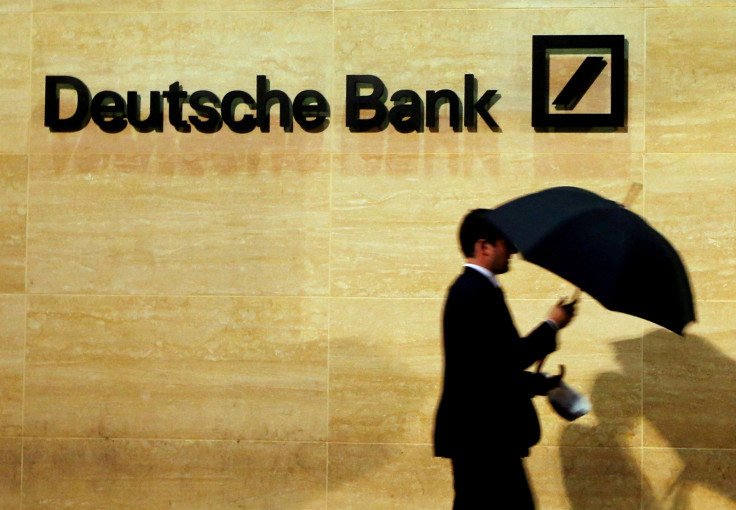Deutsche Bank embroiled in money laundering scandal for Russian criminals
The German bank is the latest to be shamed in the investigation.

Deutsche Bank has been accused of playing a major role in laundering vast sums of money for Russian criminals, an investigation has revealed.
The German bank is the latest of a number of western institutions to be embroiled in the scandal, which previously shamed the likes of Barclays, Lloyds and HSBC.
The vast laundering operation has come to light after the Organized Crime and Corruption Reporting Project (OCCRP) and Russian newspaper Novaya Gazeta obtained over 70,000 banking transactions highlighting the transactions.
At least $20bn (£16.2bn) has been laundered from Russian criminal elements to western banks in the scheme, which has been labelled "the Global Laundromat", according to the Guardian
Deutsche is said to have played a major role in the scheme by acting as a "correspondent bank" for money arriving from Latvia, making it the last stop before funds became "clean".
Funds originally left Russia after Moldovan companies made fictitious loans to counterparts in Russia. When these "debts" were defaulted on, a Moldovan judge would make court rulings to enforce payment and money could legally be sent to the country.
From Moldova, the money was sent to a Latvian bank by the name of Trasta Komercsbanka. From here it was sent to Deutsche Bank.
The bank, Germany's biggest lender, continued accepting funds from Trasta Komercsbanka up until September 2015, in spite of warning signs it was being used as a front for money laundering.
All other Wall Street firms had ceased to provide services in Latvia by 2014 and the only other bank that continued trading with the country at the time was Germany's Commerzbank.
Deutsche told the Guardian it had significantly strengthened its systems and controls and said that by the end of 2017, it will have hired more than 1,000 new staff in its compliance and anti-financial crime unit since 2015.
It added: "The bank has comprehensively reviewed its client onboarding and know-your-client processes and where necessary is exiting higher-risk client relationships and markets."
© Copyright IBTimes 2024. All rights reserved.






